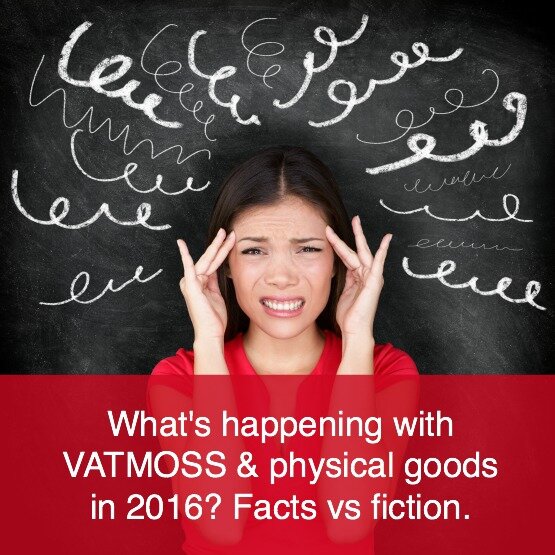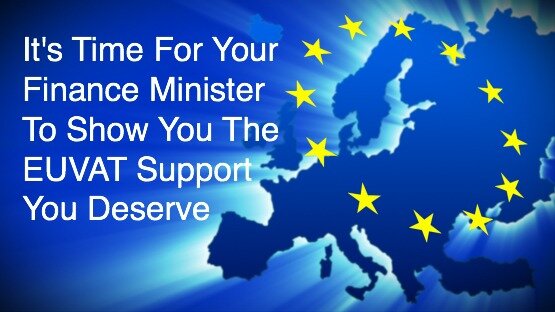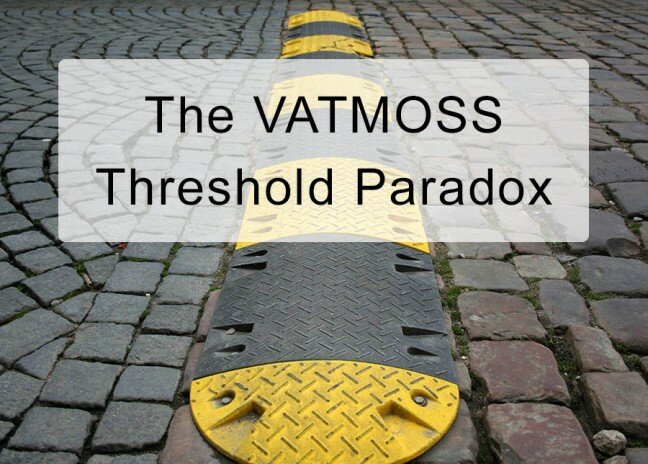If we’re to find a way forward to save the European digital economy – and every passing month sees yet more damage done – EU countries need to realise they can actually profit by taking small businesses out of cross-border digital VAT. On the other hand, it’s equally important to realise why different nations may be reluctant to agree to a VATMOSS threshold, despite the arguments in its favour.
Granted, at first glance, the idea that giving any businesses an exemption from tax would make any nation’s Treasury better off doesn’t seem to make much sense. Especially when countries worldwide are seeing their economies suffer from tax-base erosion and profit shifting. Which is what happens when global corporations from Amazon to Starbucks set up subsidiaries in tax havens with minimal taxation, and shuffle the paperwork to ensure they can do business worth millions of pounds/euro in the UK, France, Germany or elsewhere and only pay a fraction of the tax that would be due if those businesses were actually based in that country. These are legitimate concerns for governments and the new EU digital VAT regulations are intended as a first step to frustrate such financial fancy footwork.
But effective taxation is all a question of scale and this applies most particularly when dealing with the smallest businesses. There’s a crucial point where the fixed costs of collecting a tax are more than the money that comes in. This is a central concern with VATMOSS, given so many small-scale direct digital traders are making quarterly returns of under £/€20.
After six months of these new regulations, HMRC has revealed that 78% of the VATMOSS returns being processed in the UK only bring in 1% of the total revenue they get from this scheme. And that’s not even counting all those people submitting zero returns because they don’t happen to have made a cross-border sale in that quarter.
Is that 1% of revenue covering the cost of all that added administration? If not, then taking those smallest traders out of this system will mean the Treasury’s better off overall. It’s basic cost-versus-benefit analysis which every EU state now needs to do as a matter of urgency. They have the data. They need to use it NOW.
More than that, countries need to consider is this 1% or so worth having in the short term, compared to the losses of tax revenues that they will see in the medium and longer term?
Because there’s a tipping point for small businesses when considering the tax to be paid and the costs of paying that tax in administration and accountancy fees. There’s a point where those costs use up such a high percentage of a business’s turnover that it simply makes no sense for an individual to carry on trading for what little income is left.
If giving up their fledgling enterprise means going onto unemployment and other benefits, then that person’s government will see their social security bill go up. That country would be better off forgoing a comparatively trivial amount of tax in return for this saving on welfare.
Longer term, these small businesses which are currently being killed off with every passing month can never grow into the medium and larger companies which would have paid worthwhile amounts of tax as well as generating employment and overall economic growth.
When a small business’s income is subject to a particular tax from the very first penny, the loss of potential is even greater. The expense of compliance added to other start-up costs has now created such a forbidding barrier to entry that promising enterprises are being abandoned at the planning stage. Companies which could have become world leaders will never see the light of day.
This is especially true in the digital economy where multinational corporations have quite literally started at kitchen tables (Dunnhumby) or in garages (Apple). In the 21st century, online enterprise means investing time to start a business instead of a whole load of money up front. A single entrepreneur can turn a good idea into a digital product and take it to a global marketplace using freely available computer resources to learn new skills and the marketing reach of blogs, social media and online interest groups. As soon as a trickle of money comes in, services like web hosting and domain registration are easily affordable. As the business grows, more aspects can be contracted out, all generating economic growth and employment. All of that activity increases a country’s tax base.
But not if that business never starts up because of VATMOSS compliance costs. We already know that enterprises expecting to pay under £/€100 annually in cross-border digital VAT are facing anything from £500 to £5000 in added costs. No wonder so many people are giving up on the very idea of starting a new digital business now that they have to find that sort of money up front, before they’ve even earned a penny.
You don’t need to just take our word on all this. The OECD Secretary General has just issued a key report to the G20 Finance Ministries on taxation including VAT issues for small and medium enterprises (SMEs). You can read the whole thing here if you’re keen but these are some key points:
“… Tax compliance costs typically have a significant fixed cost component, tending to impose a relatively higher burden on SMEs than on larger enterprises which can benefit from returns to scale in complying. Tax compliance costs may affect a number of economic margins faced by the owners and operators of SMEs, notably, whether to become self-employed, whether to employ others and whether to operate in the formal economy.” (page 105 para 207)
“Along with other taxes, VAT imposes compliance costs on businesses and administrative costs on tax authorities. Although VAT is designed to be neutral for business taxpayers, VAT is often classified as particularly difficult and burdensome for SMEs to collect and comply with. Hence simplified VAT regimes for SMEs are often an efficient way to promote compliance.” (page 118, para 262)
“Exemption thresholds set a level of turnover below which there is no obligation to comply with VAT regulations. Entities under these thresholds do not account for output VAT and consequently are not entitled to deduct input tax incurred on purchases of goods and services. This is a commonly-used and straightforward option to address VAT compliance costs.” (page 118, para 264)
So why is there any debate? Why wasn’t a threshold included from the start, when the VATMOSS system was agreed?
Well, as with so much in life, it’s more complicated than that. The OECD hasn’t produced a 160 page report analysing taxation issues in detail for the fun of it. As this document also says:
“Whether to establish a threshold is an important issue for VAT design. The level of the threshold is often a trade-off between minimising compliance and administration costs and the need to avoid jeopardising revenue and/or distorting competition. Exempting small firms from the VAT system may forgo little revenue, however, the balance between cost savings and revenue losses shifts as thresholds increase and at some point the forgone revenue will exceed the compliance and administrative costs. At some intermediate point an optimal VAT threshold can be identified, at which the cost savings and revenue losses are equal. Further, there are a number of other factors including distortionary effects inherent in the application of thresholds that should be taken into account. All these considerations make the identification of the optimal threshold for each country a difficult question to determine and one which may vary across the heterogeneous SME population.” (page 119 para 271)
If identifying an optimal VAT threshold for an individual country is difficult, how much more challenging is that going to be for the entire European Union?
The 28 member states vary hugely in geographic size, location, resources and population, just to begin with. Every country’s economy has different strengths and weaknesses. Every nation sets its own priorities with regard to regulation or liberalisation of market forces and in terms of the social contract between government and citizens. Each exchequer and finance ministry sets its own budget accordingly, balancing direct taxation on income and indirect taxes like VAT, and accountable to the electorate giving its politicians their democratic mandate.
So it’s hardly surprising to see different countries oppose sweeping proposals for some one-size-fits-all, universal VAT threshold applied to all small companies’ total turnover.
This is why the EU VAT Action Campaign’s call for a VATMOSS threshold specifically states that this should only apply to cross-border digital sales. Every country’s own domestic VAT regime would still apply outside that, leaving national sovereignty over taxation unchallenged.
Working out the fine details will be a complex task and such things invariably take time. Unfortunately we have no time to spare, now that these regulations are already in operation.
The damage is already being done as businesses close, scale back their digital sales or lose income vital to their future growth in 3rd party marketplace fees. All of which erodes every EU country’s tax base and potentially adds to its welfare bill.
This is why the EU VAT Action Campaign is calling for immediate interim easements to save the small businesses worst affected from going under in the two to five years it will take before these laws can be changed at EU level.
Whether these interim thresholds or suspension come centrally from the EU Commission or individually from national governments using their discretion to protect their own economies as they see best is a secondary consideration. The primary issue is practical action to save the digital, knowledge and skills-based economy needs to happen NOW.




